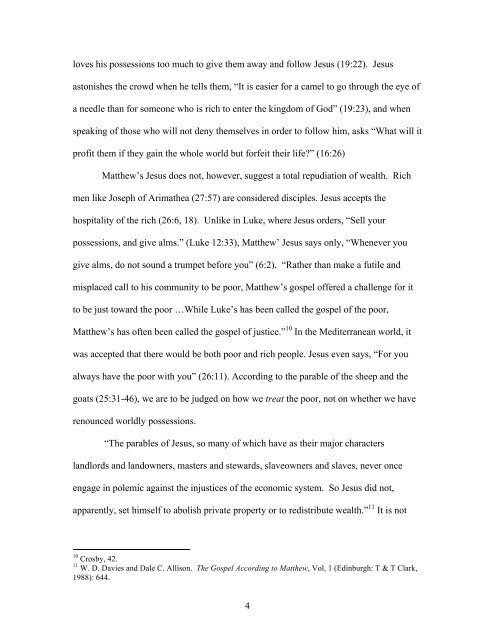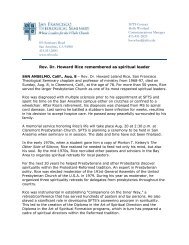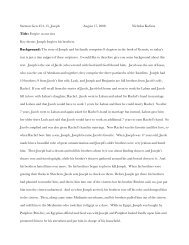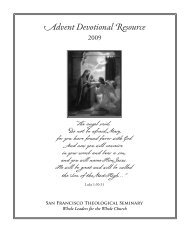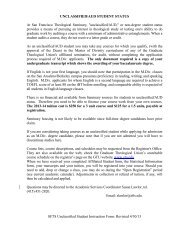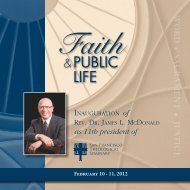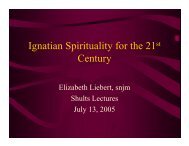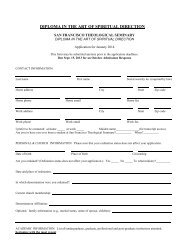Bev Franco Essay - San Francisco Theological Seminary
Bev Franco Essay - San Francisco Theological Seminary
Bev Franco Essay - San Francisco Theological Seminary
You also want an ePaper? Increase the reach of your titles
YUMPU automatically turns print PDFs into web optimized ePapers that Google loves.
loves his possessions too much to give them away and follow Jesus (19:22). Jesus<br />
astonishes the crowd when he tells them, “It is easier for a camel to go through the eye of<br />
a needle than for someone who is rich to enter the kingdom of God” (19:23), and when<br />
speaking of those who will not deny themselves in order to follow him, asks “What will it<br />
profit them if they gain the whole world but forfeit their life” (16:26)<br />
Matthew’s Jesus does not, however, suggest a total repudiation of wealth. Rich<br />
men like Joseph of Arimathea (27:57) are considered disciples. Jesus accepts the<br />
hospitality of the rich (26:6, 18). Unlike in Luke, where Jesus orders, “Sell your<br />
possessions, and give alms.” (Luke 12:33), Matthew’ Jesus says only, “Whenever you<br />
give alms, do not sound a trumpet before you” (6:2). “Rather than make a futile and<br />
misplaced call to his community to be poor, Matthew’s gospel offered a challenge for it<br />
to be just toward the poor …While Luke’s has been called the gospel of the poor,<br />
Matthew’s has often been called the gospel of justice.” 10 In the Mediterranean world, it<br />
was accepted that there would be both poor and rich people. Jesus even says, “For you<br />
always have the poor with you” (26:11). According to the parable of the sheep and the<br />
goats (25:31-46), we are to be judged on how we treat the poor, not on whether we have<br />
renounced worldly possessions.<br />
“The parables of Jesus, so many of which have as their major characters<br />
landlords and landowners, masters and stewards, slaveowners and slaves, never once<br />
engage in polemic against the injustices of the economic system. So Jesus did not,<br />
apparently, set himself to abolish private property or to redistribute wealth.” 11 It is not<br />
10 Crosby, 42.<br />
11 W. D. Davies and Dale C. Allison. The Gospel According to Matthew, Vol. 1 (Edinburgh: T & T Clark,<br />
1988): 644.<br />
4


